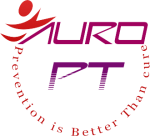An Advanced Method to Decrease Pain and Improve Function
This remarkable procedure allows us to detect and treat areas of “scar tissue” or adhesions in muscles, tendons and ligaments that can reduce our range of motion and cause pain.
In the healing process, our body attempts to repair those areas by creating “scar tissue,” much like the scar that forms on the skin when you have scraped or banged your knee.
Dysfunction
In time, we can have a buildup of this fibrous scar tissue, particularly in the muscles, tendons and ligaments that get a lot of use. This can lead to pain and dysfunction because this replacement tissue lacks the strength and flexibility of healthy tissue (in some areas it may even mat down and entrap a nerve).
GT Instruments
The Graston Technique® allows us to better detect and treat these areas because it uses a stainless steel instrument that glides along a patient’s muscle, tendons or ligaments, with the right amount of pressure to detect just where the scar tissue or restrictions are located. When these knots or bands of scar tissue are encountered, both the clinician and the patient sense a restriction, almost like a speed bump or a granular feeling. The instrument can then be used to “break up” this restriction or adhesion. Stretching exercises are used to promote re-alignment of the fibers into the normal pattern of healthy tissue.
Benefits
The benefit of the Graston Technique® is not only in detection of restrictions or adhesions, but also in the amount of improvement that takes place in a short amount of time. Remember the song and words “…the knee bone is connected to the thigh bone…”? Well, so they are and so is all of the body parts connected in what is referred to as the kinetic chain. The instruments allow the clinician to follow that kinetic chain, effectively uncovering the cause of the problem, then treating the cause and the area of pain or restriction.
Soft Tissue Dysfunction
Graston Technique® has been effective in the treatment of:
• Carpal tunnel syndrome • Cervical pain • De Quervain’s syndrome • Epicondylosis
• Fibromyalgia • IT band syndrome • Joint sprain • Lower back pain • Muscle strain
• Painful scars • Plantar fasciitis • Tendinosis • Post-fracture pain • Women’s health (post-mastectomy and Caesarean scarring)
The unaided hand is hard pressed to detect and break up as much scar tissue, or follow the kinetic chain, as effectively or efficiently as stainless steel instruments can. Patients usually receive two treatments per week for four to five weeks. Most patients have a positive response within two to three treatments. Most patients are not disabled and continue to perform their regular functions at home or work. GT decreases overall time of treatment, fosters faster rehabilitation/recovery, reduces need for anti-inflammatory medication and resolves chronic conditions thought to be permanent. If you have not experienced the Graston Technique® yet you have lingering discomfort or stiffness, please ask us whether you may be helped by this effective treatment.
Care Instructions and Possible Side Effects
Dedication to a prescribed home exercise program is essential to the success of your treatment. Stretching and strengthening exercises are given to you in order to maintain the release of scar tissue, restrictions and adhesions.
Bruising:Since the involved tissue binds with normal tissue, it develops a blood supply. As restrictions are released from healthy tissue, bruising may occur, especially in treating chronic conditions. Some areas of the body that have a very rich blood supply may produce more bruising. Bruising can be controlled with ice.
Soreness: An increase in soreness and discomfort is not uncommon after the first treatment session and is most often a positive sign that restrictions have been released. Soreness is usually minimized after 48 to 72 hours and can be controlled with ice and stretching.
Water Intake: It is recommended that you drink six to eight 8-oz. glasses of water per day. Adequate hydration is important to promote proper healing.
Should you have any questions regarding your instructions, please contact your clinician.
